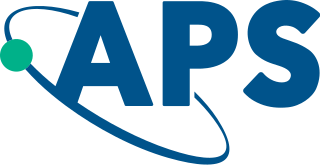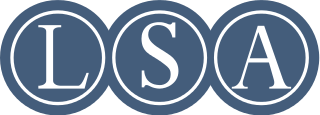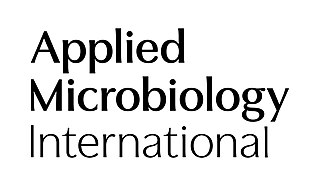The Association for Computing Machinery (ACM) is a US-based international learned society for computing. It was founded in 1947 and is the world's largest scientific and educational computing society. The ACM is a non-profit professional membership group, reporting nearly 110,000 student and professional members as of 2022. Its headquarters are in New York City.

The American Physical Society (APS) is a not-for-profit membership organization of professionals in physics and related disciplines, comprising nearly fifty divisions, sections, and other units. Its mission is the advancement and diffusion of knowledge of physics. The society publishes more than a dozen scientific journals, including the prestigious Physical Review and Physical Review Letters, and organizes more than twenty science meetings each year. APS is a member society of the American Institute of Physics. Since January 2021 the organization has been led by chief executive officer Jonathan Bagger.
The American Statistical Association (ASA) is the main professional organization for statisticians and related professionals in the United States. It was founded in Boston, Massachusetts on November 27, 1839, and is the second oldest continuously operating professional society in the US. The ASA services statisticians, quantitative scientists, and users of statistics across many academic areas and applications. The association publishes a variety of journals and sponsors several international conferences every year.

The American Society for Microbiology (ASM), originally the Society of American Bacteriologists, is a professional organization for scientists who study viruses, bacteria, fungi, algae, and protozoa as well as other aspects of microbiology. It was founded in 1899. The Society publishes a variety of scientific journals, textbooks, and other educational materials related to microbiology and infectious diseases. ASM organizes annual meetings, as well as workshops and professional development opportunities for its members.

The British Computer Society (BCS), branded BCS, The Chartered Institute for IT, since 2009, is a professional body and a learned society that represents those working in information technology (IT), computing, software engineering and computer science, both in the United Kingdom and internationally. Founded in 1957, BCS has played an important role in educating and nurturing IT professionals, computer scientists, software engineers, computer engineers, upholding the profession, accrediting chartered IT professional status, and creating a global community active in promoting and furthering the field and practice of computing.

The Canadian Mathematical Society is an association of professional mathematicians dedicated to the interests of mathematical research, outreach, scholarship and education in Canada. It serves the national community through the publication of academic journals, community bulletins, and the administration of mathematical competitions.

The Linguistic Society of America (LSA) is a learned society for the field of linguistics. Founded in New York City in 1924, the LSA works to promote the scientific study of language. The society publishes three scholarly journals: Language, the open access journal Semantics and Pragmatics, and the open access journal Phonological Data & Analysis. Its annual meetings, held every winter, foster discussion amongst its members through the presentation of peer-reviewed research, as well as conducting official business of the society. Since 1928, the LSA has offered training to linguists through courses held at its biennial Linguistic Institutes held in the summer. The LSA and its 3,600 members work to raise awareness of linguistic issues with the public and contribute to policy debates on issues including bilingual education and the preservation of endangered languages.

The Acoustical Society of America (ASA) is an international scientific society founded in 1929 dedicated to generating, disseminating and promoting the knowledge of acoustics and its practical applications. The Society is primarily a voluntary organization of about 7500 members and attracts the interest, commitment, and service of many professionals.

The Canadian Library Association (CLA) was a national, predominantly English-language association which represented 57,000 library workers across Canada. It also spoke for the interests of the 21 million Canadians who are members of libraries. CLA members worked in all four types of libraries: academic, public, special and school libraries. Others sat on boards of public libraries, work for companies that provide goods and services to libraries, or were students in graduate level or community college programs.

The Institution of Engineering and Technology (IET) is a multidisciplinary professional engineering institution. The IET was formed in 2006 from two separate institutions: the Institution of Electrical Engineers (IEE), dating back to 1871, and the Institution of Incorporated Engineers (IIE) dating back to 1884. Its worldwide membership is currently in excess of 158,000 in 153 countries. The IET's main offices are in Savoy Place in London, England, and at Michael Faraday House in Stevenage, England.
The American Medical Writers Association (AMWA) is a professional association for medical communicators, with more than 4,000 members in the United States, Canada, and 30 other countries. AMWA is governed by a board of directors composed of the elected officers, 6–8 at-large directors, and the chapter advisory council chair. AMWA has regional chapters and provides local networking opportunities throughout the United States and Canada. The association was founded in 1940 by physicians interested in improving the quality of medical writing and editing. The current president is Gail Flores, PhD.

The American Educational Research Association is a professional organization representing education researchers in the United States and around the world. AERA's mission is to advance knowledge about education and promote the use of research in educational practice.

The American Oil Chemists' Society (AOCS) is an international professional organization based in Urbana, Illinois dedicated to providing the support network for those involved with the science and technology related to fats, oils, surfactants, and other related materials.

The Association for Slavic, East European, and Eurasian Studies (ASEEES) is a scholarly society "dedicated to the advancement of knowledge about Central Asia, the Caucasus, Russia, and Eastern Europe in regional and global contexts." The ASEEES supports teaching, research, and publication relating to the peoples and territories within this area.
The Ornithological Society of New Zealand (OSNZ), also known as Birds New Zealand, is a non-profit organisation dedicated to the study of birds and their habitats in the New Zealand region. Founded in 1940, it caters to a wide variety of people interested in the birds of the region, from professional ornithologists to casual birdwatchers.

The Canadian Identification Society (CIS) is a bilingual (English- French) professional non-for-profit fellowship of police officers and civilian members who share interests and employment in crime scene investigation. Also known in French as Société Canadienne de l'Identité (SCI)
The Materials Research Society (MRS) is a non-profit, professional organization for materials researchers, scientists and engineers. Established in 1973, MRS is a member-driven organization of approximately 13,000 materials researchers from academia, industry and government.
The American Orthopaedic Society for Sports Medicine (AOSSM) promotes sports medicine education, research, communication, and fellowship and includes national and international orthopaedic sports medicine leaders. The Society works closely with many other sports medicine specialists, including athletic trainers, physical therapists, family physicians, and others to improve the identification, prevention, treatment, and rehabilitation of sports injuries. Formed in 1972 as a forum for education and research with 100 members, the AOSSM today has to more than 2,000 members.

Applied Microbiology International, formally known as the Society for Applied Microbiology (SfAM), is the oldest microbiology society in the UK founded in 1931. Its objective is to advance for the benefit of the public the science of microbiology in its application to the environment, human and animal health, agriculture and industry. Applied Microbiology International is an active member of the Royal Society of Biology, and the Federation of European Microbiological Societies. The organisation's current president is Professor Jack Gilbert.
The International Society for Biocuration (ISB) is a non-profit organisation that promotes the field of biocuration and was founded in early 2009. It provides a forum for information exchange through meetings and workshops. The society's conference, the International Biocuration Conference, has been held in Pacific Grove, California (2005), San José, CA (2007), Berlin (2009), Tokyo, Japan (2010), Washington, DC (2012), Cambridge, UK (2013), Toronto, Canada (2014), Beijing, China (2015) and Geneva, Switzerland (2016). The meeting in 2017 will be held in Stanford, California.













